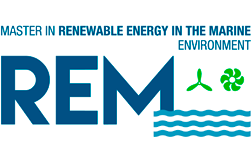Scholar Activities Intake 2020-2022
Attendace to the conferences is open to the academic community and REM associate partners. They will take place online.
- 22/03/2021 – 26/03/2021. Lucca Zaccarian ” Hybrid Dynamical Systems and Their Application to Power Converters
- 26/04/2021 – 30/04/2021. Danilo Iglesias Brandao “Multifunctional Active Front-end Converter”
- 18/05/2021 – 21/05/2021. Miguel Jiménez Carrizosa “Renewable Energy in the Marine Environment and its Impact in the Electrical Grid”
- 07/06/2021 – 11/06/2021. Qobad Shafiee “Microgrids”
- 14/06/2021 – 18/06/2021. Daniele Zonetti “Power Systems Analysis”
- 21/06/2021 – 18/06/2021. Eduado Prieto Araujo “Future Power Electronics Dominated Networks”
- 21/06/2021 – 24/06/2021. J. Davidson “Development and Optimisation of Marine Renewable Energy Devices
- 22/06/2021 – 25/06/2021. J. Henriques “Development and Testing of OWCs and WECs”
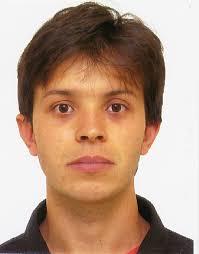 Danilo Iglesias Brandao received the Ph.D. degree in electrical engineering from the University of Campinas, Brazil, in 2015. He was a visiting scholar at the Colorado School of Mines, USA, in 2009 and 2013, a visiting scholar at the University of Padova, Italy, in 2014, and a guest professor at the Norwegian University of Science and Technology, Norway, in 2018 and 2020. He is currently an assistant professor at the Graduate Program in Electrical Engineering with the Federal University of Minas Gerais, Belo Horizonte, Brazil. His main research interests are control of grid-tied converters and microgrids. He is a member of SOBRAEP.
Danilo Iglesias Brandao received the Ph.D. degree in electrical engineering from the University of Campinas, Brazil, in 2015. He was a visiting scholar at the Colorado School of Mines, USA, in 2009 and 2013, a visiting scholar at the University of Padova, Italy, in 2014, and a guest professor at the Norwegian University of Science and Technology, Norway, in 2018 and 2020. He is currently an assistant professor at the Graduate Program in Electrical Engineering with the Federal University of Minas Gerais, Belo Horizonte, Brazil. His main research interests are control of grid-tied converters and microgrids. He is a member of SOBRAEP.
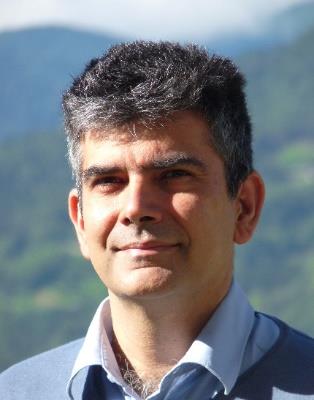 Luca Zaccarian has been Assistant and then Associate Professor in control engineering at the University of Roma, Tor Vergata (Italy) from 2000 to 2011. Since 2011 he is Directeur de Recherche at the LAAS-CNRS, Toulouse (France) and since 2013 he holds a part-time Professor position at the University of Trento, Italy. Luca Zaccarian’s main research interests include analysis and design of nonlinear and hybrid control systems, modeling and control of mechatronic systems. He is currently a member of the EUCA-CEB and an associate editor for the IFAC journal Automatica and for the European Journal of Control. He was a nominated member of the Board of Governors of the IEEE-CSS in 2014, and an elected member in 2017-2019. He was Student Activities Chair for the IEEE-CSS in 2015–2017 and is currently Associate Editor of Electronic Publications (Conference Information) for the IEEE-CSS. He was a recipient of the 2001 O. Hugo Schuck Best Paper Award given by the American Automatic Control Council. He is a fellow of the IEEE, class of 2016.
Luca Zaccarian has been Assistant and then Associate Professor in control engineering at the University of Roma, Tor Vergata (Italy) from 2000 to 2011. Since 2011 he is Directeur de Recherche at the LAAS-CNRS, Toulouse (France) and since 2013 he holds a part-time Professor position at the University of Trento, Italy. Luca Zaccarian’s main research interests include analysis and design of nonlinear and hybrid control systems, modeling and control of mechatronic systems. He is currently a member of the EUCA-CEB and an associate editor for the IFAC journal Automatica and for the European Journal of Control. He was a nominated member of the Board of Governors of the IEEE-CSS in 2014, and an elected member in 2017-2019. He was Student Activities Chair for the IEEE-CSS in 2015–2017 and is currently Associate Editor of Electronic Publications (Conference Information) for the IEEE-CSS. He was a recipient of the 2001 O. Hugo Schuck Best Paper Award given by the American Automatic Control Council. He is a fellow of the IEEE, class of 2016.
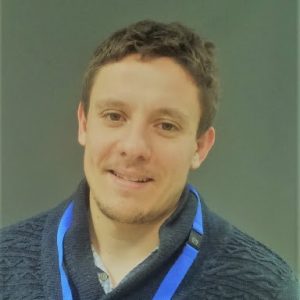 Miguel Jimenez Carrizosa received the Industrial Engineer (Electrical Engineering) degree from Universidad Politécnica de Madrid (UPM, Spain) in 2012. He obtained a M.S. degree in Energy Systems from Supélec (France) in 2012. He received his Ph.D. in 2015. His Ph.D work has been included in the final selection of “Paul Caseau Prize 2016” in October 2016. From 2015 to 2016, he was working at the Department of Power & Energy Systems at CentraleSupélec with a post-doctoral position and as assistant teacher. He also has worked at CNAM and ENSAM universities (Paris) as assistant teacher (2015-2016). During 2017, he was post-doctoral researcher at IMDEA Energy Institute (Madrid). In September 2017, he was awarded with a “Juan de la Cierva” national grant in the Centro de Electronica Industrial, Universidad Politécnica de Madrid (CEI-UPM). In Mars 2019 he received the Marie Skłodowska-Curie “Seal of Excellence” delivered by the European Commission. Currently, he is Assistant Professor at “Departamento de Energía y Combustibles” at “ETSI de Minas y Energía” from Universidad Politécnica de Madrid and researcher at CEI-UPM.
Miguel Jimenez Carrizosa received the Industrial Engineer (Electrical Engineering) degree from Universidad Politécnica de Madrid (UPM, Spain) in 2012. He obtained a M.S. degree in Energy Systems from Supélec (France) in 2012. He received his Ph.D. in 2015. His Ph.D work has been included in the final selection of “Paul Caseau Prize 2016” in October 2016. From 2015 to 2016, he was working at the Department of Power & Energy Systems at CentraleSupélec with a post-doctoral position and as assistant teacher. He also has worked at CNAM and ENSAM universities (Paris) as assistant teacher (2015-2016). During 2017, he was post-doctoral researcher at IMDEA Energy Institute (Madrid). In September 2017, he was awarded with a “Juan de la Cierva” national grant in the Centro de Electronica Industrial, Universidad Politécnica de Madrid (CEI-UPM). In Mars 2019 he received the Marie Skłodowska-Curie “Seal of Excellence” delivered by the European Commission. Currently, he is Assistant Professor at “Departamento de Energía y Combustibles” at “ETSI de Minas y Energía” from Universidad Politécnica de Madrid and researcher at CEI-UPM.
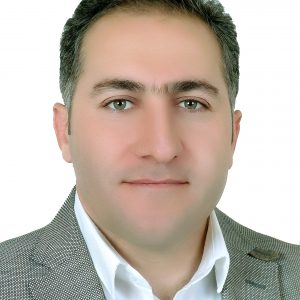 Qobad Shafiee received PhD degree in Electrical Engineering from the Department of Energy Technology, Aalborg University (Denmark) in 2014. He is currently an Assistant Professor, Director of International Affairs, and Co-Leader of the Smart/Micro Grids Research Center at the University of Kurdistan (Sanandaj, Iran), where he was a lecturer from 2007 to 2011. In 2014, he was a Visiting Scholar with the Electrical Engineering Department, the University of Texas at Arlington, Arlington, TX, USA. He was a Post-Doctoral Fellow with the Department of Energy Technology, Aalborg University in 2015. He is a Senior Member of IEEE and Guest Associate Editor of IEEE Transactions on Energy Conversion. His current research interests include modeling, energy management, control of power electronics-based systems and microgrids, and model predictive and optimal control of modern power systems.
Qobad Shafiee received PhD degree in Electrical Engineering from the Department of Energy Technology, Aalborg University (Denmark) in 2014. He is currently an Assistant Professor, Director of International Affairs, and Co-Leader of the Smart/Micro Grids Research Center at the University of Kurdistan (Sanandaj, Iran), where he was a lecturer from 2007 to 2011. In 2014, he was a Visiting Scholar with the Electrical Engineering Department, the University of Texas at Arlington, Arlington, TX, USA. He was a Post-Doctoral Fellow with the Department of Energy Technology, Aalborg University in 2015. He is a Senior Member of IEEE and Guest Associate Editor of IEEE Transactions on Energy Conversion. His current research interests include modeling, energy management, control of power electronics-based systems and microgrids, and model predictive and optimal control of modern power systems.
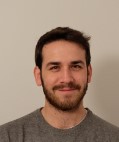 Eduardo Prieto Araujo was born in Premià de Mar, Spain, in 1986. He received the degree in industrial engineering from the School of Industrial Engineering of Barcelona (ETSEIB), Universitat Politècnica de Catalunya (UPC), Barcelona, Spain, in 2011, and the Ph.D. degree in electrical engineering from UPC, in 2016. Since 2010, he has been with CITCEA-UPC Research Group. He is currently a Lecturer of the Serra Húnter programme at the UPC Electrical Engineering Department. He is also a visiting professor at the ETH Zürich Automatic Control Laboratory since January 2021. He is participating in CIGRE Working groups B4.70 and B4.81, B4.84, B4.85 and B4.87, all related with HVDC converters. His main interests are renewable generation systems, control of power converters for HVDC applications, and interaction analysis between converters and power electronics dominated power systems. He is currently coordinating the Smart Electrical Networks (SENSE) InnoEnergy Master at UPC and he is also the director of the long life learning Master in Enertronics of the UPC professional school.
Eduardo Prieto Araujo was born in Premià de Mar, Spain, in 1986. He received the degree in industrial engineering from the School of Industrial Engineering of Barcelona (ETSEIB), Universitat Politècnica de Catalunya (UPC), Barcelona, Spain, in 2011, and the Ph.D. degree in electrical engineering from UPC, in 2016. Since 2010, he has been with CITCEA-UPC Research Group. He is currently a Lecturer of the Serra Húnter programme at the UPC Electrical Engineering Department. He is also a visiting professor at the ETH Zürich Automatic Control Laboratory since January 2021. He is participating in CIGRE Working groups B4.70 and B4.81, B4.84, B4.85 and B4.87, all related with HVDC converters. His main interests are renewable generation systems, control of power converters for HVDC applications, and interaction analysis between converters and power electronics dominated power systems. He is currently coordinating the Smart Electrical Networks (SENSE) InnoEnergy Master at UPC and he is also the director of the long life learning Master in Enertronics of the UPC professional school.
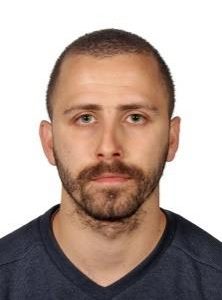 Daniele Zonetti received his B.Sc. in Automatic Engineering from the University of Rome, La Sapienza, in 2009 and a master’s degree in automatic control from the University of Paris-Sud XI, France, in 2012. He then obtained the Ph.D. degree in automatic control from the University of Paris-Saclay, France in 2016. He recently joined CITCEA at Polytechnical University of Catalonia (UPC), Barcelona, Spain as a Researcher. Prior to that, he held appointments as postdoctoral researcher at IMDEA Energy Institute, Madrid, Spain, in 2017, in quality of recipient of a Marie-Curie fellowship, and at Ecole Normale Superieure (ENS) de Cachan, France, in 2018. During the period 2019-2020 he worked as a power expert at the Division of Power Electronics and EMT Simulations (D3EP) for the French transmission network operator, RTE, in Paris. His expertise and research interests are in the field of automatic control applied to power networks and renewable energy systems.
Daniele Zonetti received his B.Sc. in Automatic Engineering from the University of Rome, La Sapienza, in 2009 and a master’s degree in automatic control from the University of Paris-Sud XI, France, in 2012. He then obtained the Ph.D. degree in automatic control from the University of Paris-Saclay, France in 2016. He recently joined CITCEA at Polytechnical University of Catalonia (UPC), Barcelona, Spain as a Researcher. Prior to that, he held appointments as postdoctoral researcher at IMDEA Energy Institute, Madrid, Spain, in 2017, in quality of recipient of a Marie-Curie fellowship, and at Ecole Normale Superieure (ENS) de Cachan, France, in 2018. During the period 2019-2020 he worked as a power expert at the Division of Power Electronics and EMT Simulations (D3EP) for the French transmission network operator, RTE, in Paris. His expertise and research interests are in the field of automatic control applied to power networks and renewable energy systems.
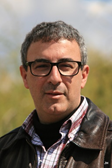 João C. C. Henriques was born in Lisbon, Portugal, in 1969. He received the Diploma in Mechanical Engineering in 1993, the M.Sc. in Mechanical Engineering in 1996, and the Ph.D. in Mechanical Engineering in 2006, all from the Instituto Superior Técnico (IST), Technical University of Lisbon (presently University of Lisbon). From 1993 to 2007, his main research topic was the development of numerical methods for simulating high-speed compressible flow. Since 2008, his main areas of research are the numerical and experimental modelling of wave energy converters (WECs), control of the power take-off system of WECs and the aerodynamic design of air turbines for oscillating water column WECs. He published 40 papers in peer-refereed journals. He also holds five patents, four in the field of wave energy and another in wind power. He participated in eight European projects in the area of wave energy. Presently is a Principal Investigator at Instituto de Engenharia Mecânica (IDMEC) and an Assistant Professor at IST.
João C. C. Henriques was born in Lisbon, Portugal, in 1969. He received the Diploma in Mechanical Engineering in 1993, the M.Sc. in Mechanical Engineering in 1996, and the Ph.D. in Mechanical Engineering in 2006, all from the Instituto Superior Técnico (IST), Technical University of Lisbon (presently University of Lisbon). From 1993 to 2007, his main research topic was the development of numerical methods for simulating high-speed compressible flow. Since 2008, his main areas of research are the numerical and experimental modelling of wave energy converters (WECs), control of the power take-off system of WECs and the aerodynamic design of air turbines for oscillating water column WECs. He published 40 papers in peer-refereed journals. He also holds five patents, four in the field of wave energy and another in wind power. He participated in eight European projects in the area of wave energy. Presently is a Principal Investigator at Instituto de Engenharia Mecânica (IDMEC) and an Assistant Professor at IST.
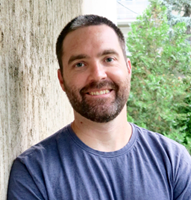 Dr Josh Davidson is from Townsville, Australia, where he studied at James Cook University, earning a First Class Honours degree and a PhD in the School of Engineering and Physical Sciences. He served as the Deputy Director at the Centre for Ocean Energy Research (COER), Maynooth University, Ireland, working on nonlinear hydrodynamic modelling and control of wave energy converters and the development of Computation Fluid Dynamics based Numerical Wave Tanks. He was the Committee Chair for the International Network on Offshore Renewable Energy (INORE). He is currently a Research Fellow at the Dept of Fluid Mechanics at Budapest University of Technology and Economics supported by an EU grant for the project Nonlinear Rock and Roll – Modelling and Control of Parametric Resonance in Wave Energy Converters.
Dr Josh Davidson is from Townsville, Australia, where he studied at James Cook University, earning a First Class Honours degree and a PhD in the School of Engineering and Physical Sciences. He served as the Deputy Director at the Centre for Ocean Energy Research (COER), Maynooth University, Ireland, working on nonlinear hydrodynamic modelling and control of wave energy converters and the development of Computation Fluid Dynamics based Numerical Wave Tanks. He was the Committee Chair for the International Network on Offshore Renewable Energy (INORE). He is currently a Research Fellow at the Dept of Fluid Mechanics at Budapest University of Technology and Economics supported by an EU grant for the project Nonlinear Rock and Roll – Modelling and Control of Parametric Resonance in Wave Energy Converters.
We will discuss modeling and control of single-phase active front-end converters (i.e., inverter) and their multifunctionalities (i.e., ancillary services) in distributed generation, in general. The course goes form inverter power electronics structure, that is split into: hardware and instrumentation, current control loop plus modulator, and reference generator. It is used a grid-feeding inverter (typically a photovoltaic inverter) as a case study, in which its modeling and control are described. Using the MatLab Simulink as an implementation tool, the grid-feeding inverter is tested, and typical ancillary services are implemented. Finally, other multifunctionalities are exploited and tested in MatLab Simulink platform, in order to enlighten the students to the flexibility and opportunities brought by the electronification of the power system.
We will discuss modeling tools for (nonlinear) hybrid dynamical systems and eventually their applications to power electronics. The standard notion of continuous-time and discrete-time dynamical system is well addressed, in the linear time-invariant case, by methods such as the Laplace or the Z transform. When wanting to describe more sophisticated dynamics, such as power electronics systems, nonlinear dynamical models are necessary and the separation between continuous- and discrete-time is no longer motivated. In particular, in the past 15-20 years, effective tools for the representation and stability analysis of hybrid (continuous+discrete) models have been proposed in the automatic control field, and have soon become a standard for the representation of sophisticated dynamics, such as those of switching components in power electronics. In this module, we will overview the main features of hybrid dynamical models, and explain how those can lead to elegant descriptions of hybrid evolutions and to clever and intuitive control solutions. A few sample applications in the area of power converters will also be discussed.
Nowadays the fight against climate change is a matter of top priority worldwide. Renewables and energy efficiency provide a safe, economical and reliable way to obtain massive decarbonisation. This course will focus on renewable energies in the marine environment, as for example the integration of offshore wind farms through HVDC links to onshore AC grid. The study on robust control techniques to improve efficiency in electronic converters will have an important role in the course as well as the power flow methods.
The talks provide both theoretical knowledge and practical foundation for understanding of power electronic-based systems and Microgrids. Different aspects of these small-scale power systems with focus on Marine applications, current challenges and research directions will be examined in detail. The topics covered are listed below:
– Power Electronics for RESs and future power systems
– Integration of RESs into the Electricity System
– Microgrids: Concept, Structure, Types and Operation Modes
– Marine Microgrids
– Microgrids Dynamic and Control
– Special Issues and and Future Directions in Microgrids
Course content:
– Classic power system key aspects review
– Power system transition
– Power systems with large penetration of power electronics
– Power electronics vs synchronous generators
– How converters should respond?
– New power system issues (several examples):
+Low inertia system
+Inertia variability
+INELFE HVDC interactions
+South Australia blackout
+Borwin 1 – oscillatory
+Luxi Back-to-Back hamonic interactions
+Best paths project ineroperability
– How do we solve these challenges?
+ Research examples at UPC
The first of these two lectures will discuss fundamental modelling aspects for physical systems with a special focus on renewable energy systems and transmission grids. The following topics will be covered:
• The relevance of modelling aspects in modern power systems
• A meta-level introduction to the concepts of dynamic system, model and representation
• Energy-based object-oriented modelling and the notion of power port
• Fundamental behaviors: storage, transformation, supply/demand and dissipation elements
• Port-Hamiltonian representations
• Modelling of smart energy systems: a set of examples
The second of these two lectures will discuss how to extend energy-based modeling approaches to networked systems, further introducing some basic elements of nonlinear stability. The following topics will be covered:
• A graph theory interpretation of interconnection laws
• Some basic notions on stability of nonlinear systems
• Power balances and passivity
• A set of examples on modelling and stability of power networks
The activity is composed of four presentations addressing the following topics:
1) The development of oscillating water column (OWC) wave energy converters (WECs) at IST (1h15m + 15m discussion) – This presentation aims to describe the development path taken by the IST Wave Energy Group in the development of OWC WECs, and how the solution of several scientific challenges resulted in several patents such as biradial turbine.
2) Model testing of WECs and air turbines for OWCs (1h15m + 15m discussion) – Model testing of OWCs comprises the hydrodynamics model, the air turbine and the complete power take-off system. This presentation addresses the different types of model tests by discussing the implementation and the major issues related to physics.
3) The reynolds number and wave‐induced real‐fluid effects in marine energy converters – A discussion about the scaling effects on model testing based on the analysis of the Navier-Stokes equations and experimental data.
4) Selection and control of an air turbines for OWCs (1h15m + 15m discussion) – The selection of air turbine is a multidisciplinary task that requires not only knowledge about the turbine itself but also the interactions with the hydrodynamics and control. This presentation aims discuss air turbine aerodynamics and control, and the interaction of these with the hydrodynamics.
The goal of the prooposed activity is to teach students about the development and optimisation of marine renewable energy (MRE) devices at low to mid Technology Readiness Levels (TRL) using computational models. Demonstrating the advantages of early-stage numerical wave tank (NWT) experimentation to increase the Technology Performance Level (TPL) of devices beforeinvesting in expensive physical prototyping, tank and ocean testing, and then later-stage NWT simulations to supplement the physical testing campaigns. The Lecture Course will encompass topics such as :
- The role of NWTs in MRE device development
- Hydrodynamic modelling
- Mooring, PTO and Control systems
- NWT experiments
To download the presentations right click on the tittle and select open
[last update = 06/23/2021]
